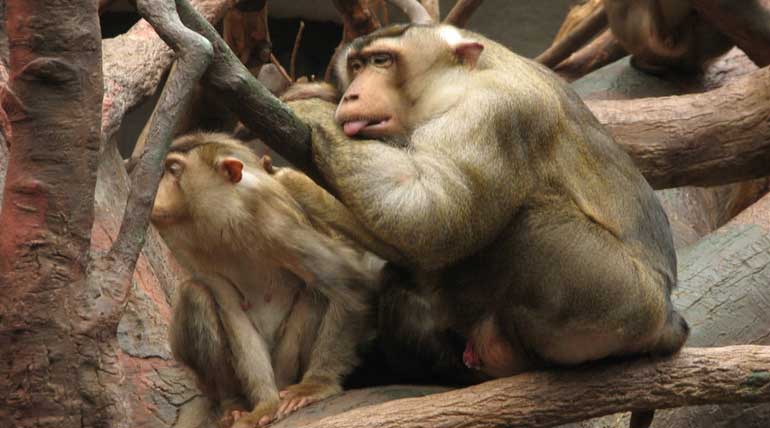ads
Pig-tailed Macaques saves Palm oil plantations in Malaysia
Siva Ranjani (Author) Published Date : Oct 22, 2019 03:08 ISTScience
Macaques are tiny monkeys of Malaysia with several kinds of subspecies; Pig-tailed is one among them. They are not rare and can be found frequently. Their diet plan includes fruits, leaves, insects, fungus, and seeds.
As Southern Pig-tailed Macaques often found traveling in groups and destroying the fields of farmers, they are marked as vulnerable by the International Union of Conservation of Nature.
In contradiction to the decision of nature conservation union, scientists of Malaysia unveils a new study result stating that Macaques protect the palm-oil plantations and maintain the eco-system.
The farmers shot several Macaques that eradicate the palm fields; However, the recent finding advocates that Macaques acts. According to the study, these Pig-tailed monkey seems to be working as pest controllers by eating rodents in the palm plantations.
Since 2013, Nadine Ruppert and her team have been studying the ecology and behavior of Southern Pig-tailed Macaques in Palm plantations of Malaysia.
The study observed that Macaques eat more than 12 tons of fruits per year from palm fields, which affects only 0.56% of total palm oil production. On further research on the appetite of Macaques,†I was stunned when I first observed that macaques feed on rats in crop plantations too,†said Ruppert, Zoology lecturer at the University of Sains Malaysia. She added that Rats are responsible for the loss of merely 10% of total palm oil production in Malaysia every year compared to Macaques.
Ruppert stuns and tells that Macaques are frugivorous primates eating birds and lizards occasionally. Still, our study proves Macaques’ role in maintaining the eco-system by feeding on rats in Palm plantations; This means the Pig-tailed Macaque groups consume more than 3000 rats in a year.
Ruppert and her team report that regular visits of pig-tailed macaques in Malaysia’s oil palm plantations could reduce crop damage from 10% to less than 3 % in a year.
Malaysia produces nearly 20million tons of palm oil every year that sets it as the biggest producer of palm oil globally. Palm oil helps in manufacturing several by-products, from eatables to cosmetics.
The meticulous study result in maintaining the ecosystem by Macaques around the plantations will help people to understand the visit of Macaque groups to their farms instead of shooting, says Anja Widdig, Senior Author at the University of Leipzig.
Pig-tailed Macaques saves Palm oil plantations in Malaysia
